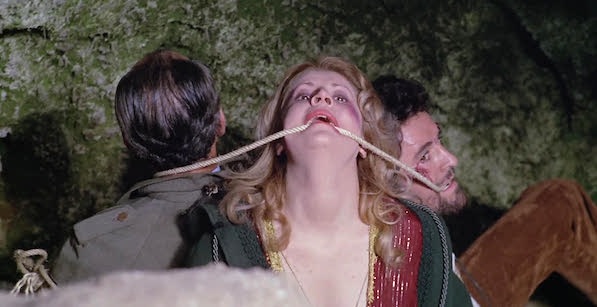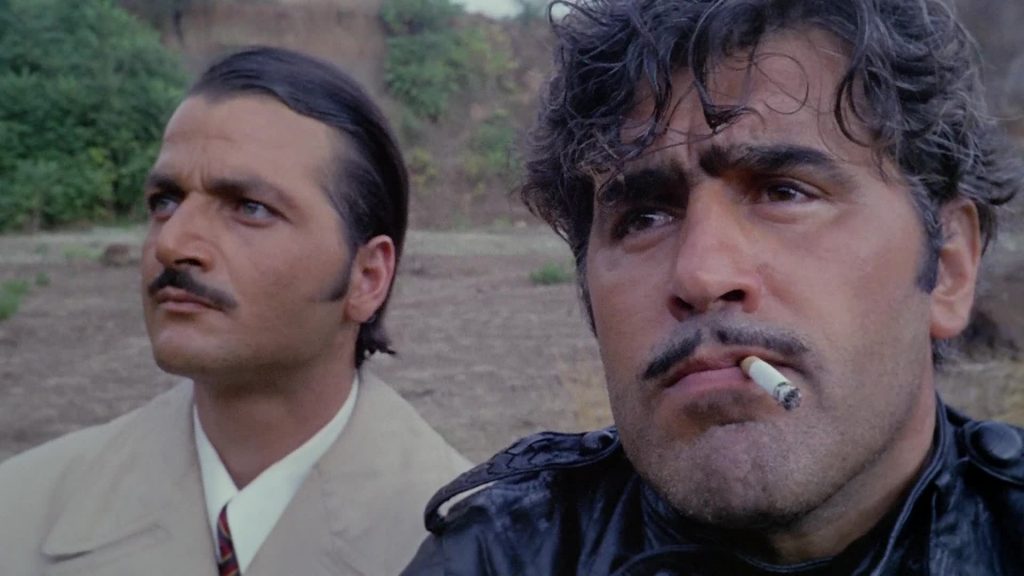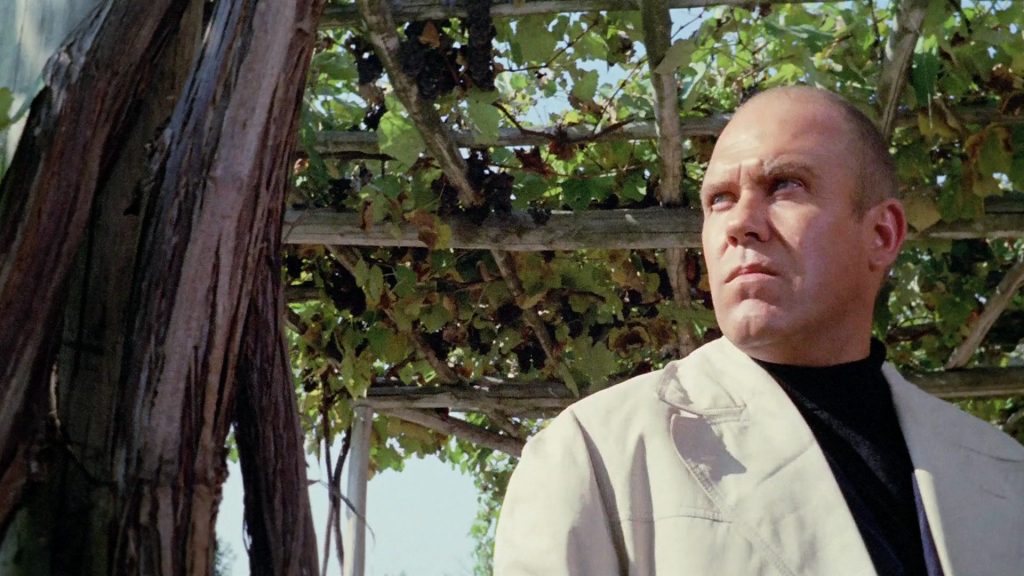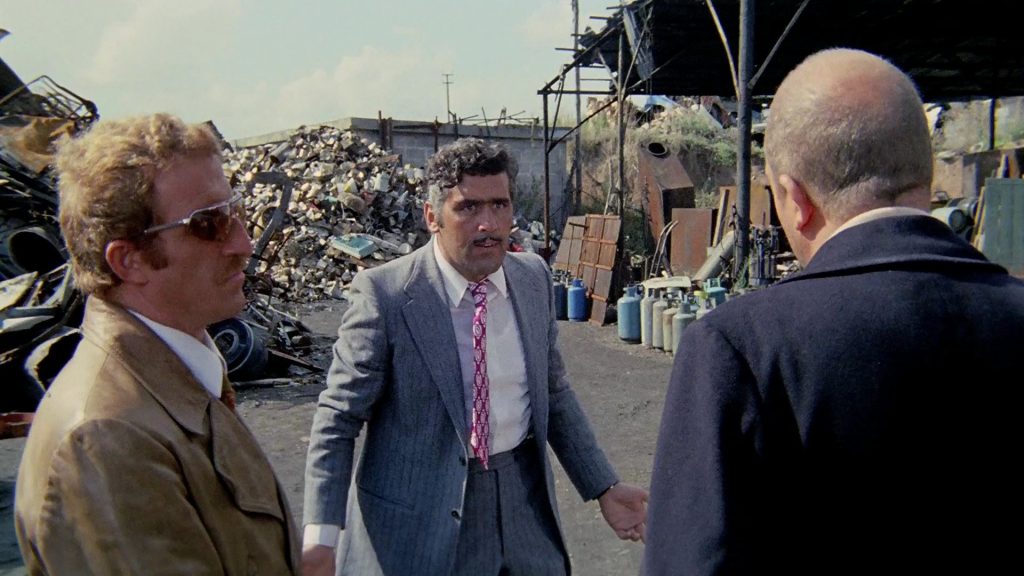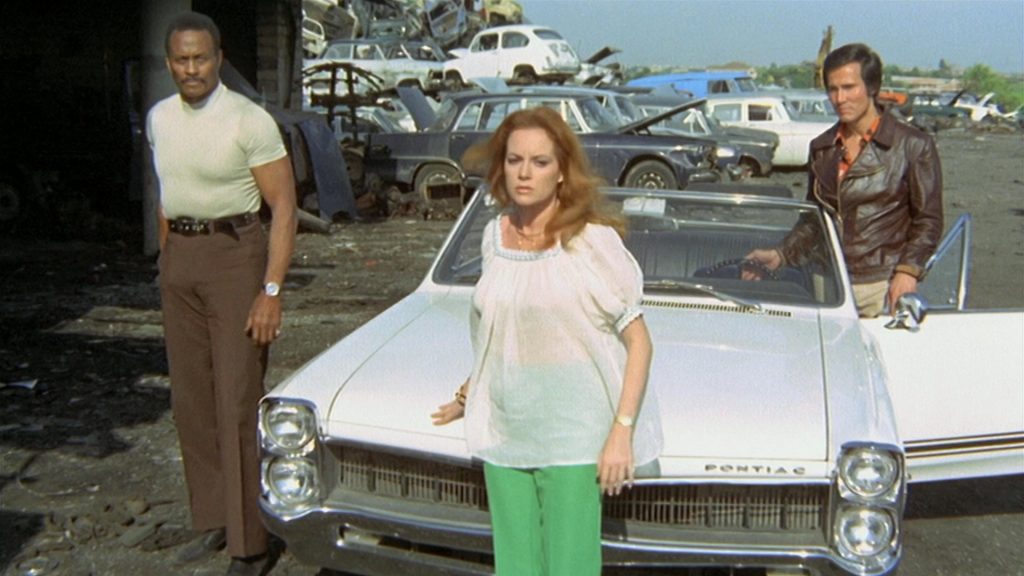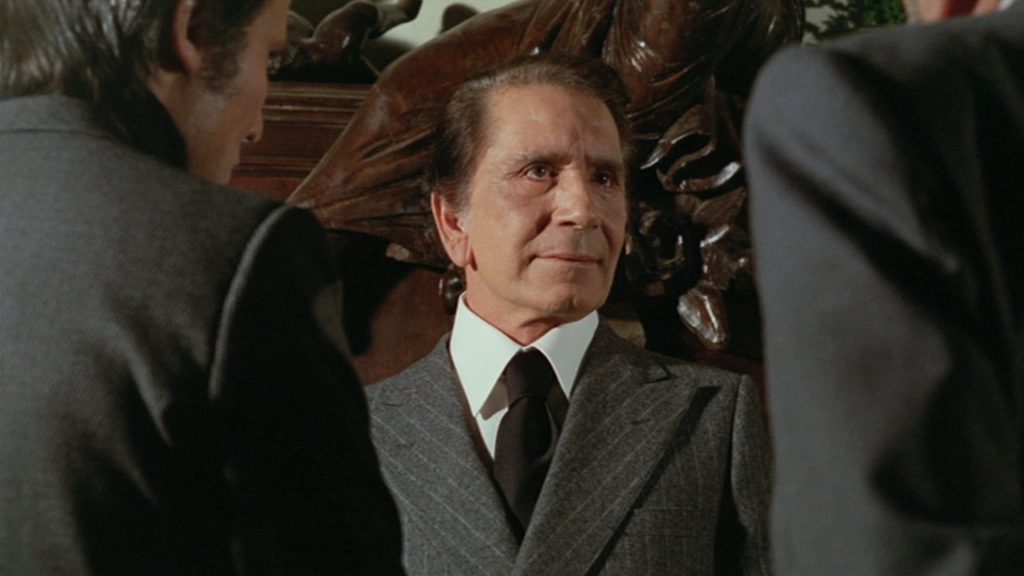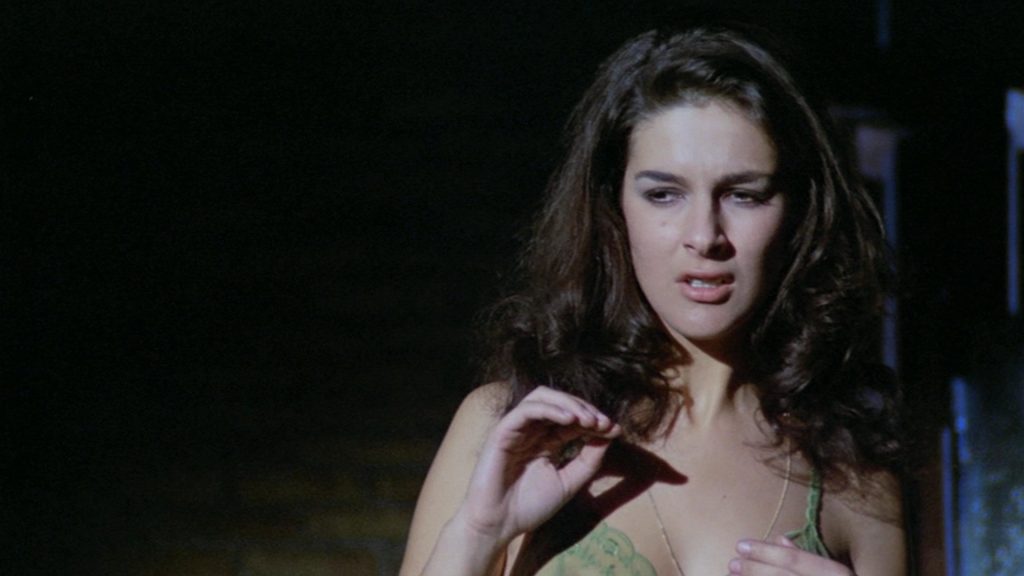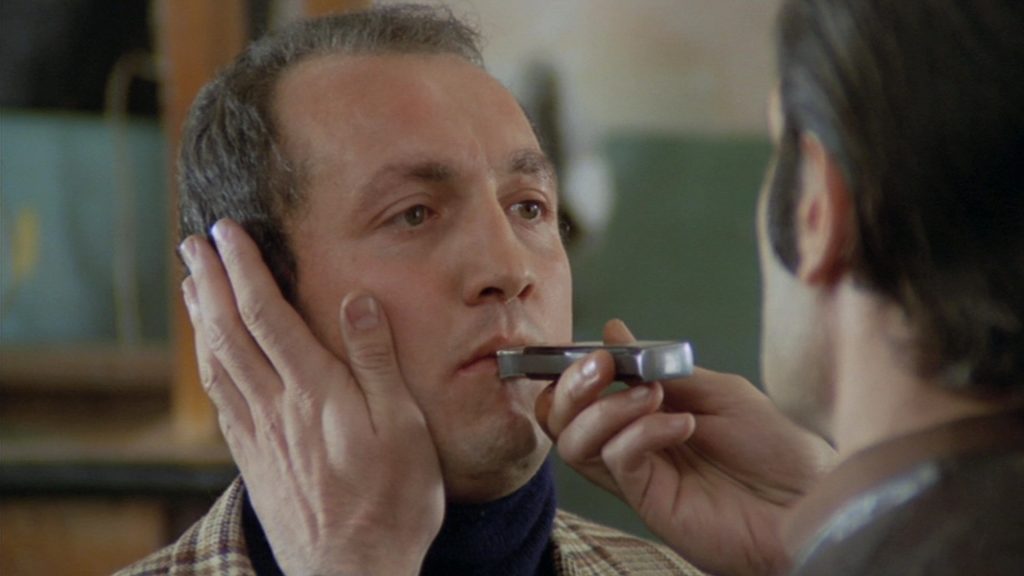Fernando Di Leo was, in the estimation of genre-hound Quentin Tarantino, “the master” of the Italian crime movie, or the “poliziotteschi.” A violent action genre that picked up the escalating violence of American films like Dirty Harry and The French Connection, films where blood spattered and cops got their hands dirty, it was never as popular an export as the spaghetti western (which is displaced on Italian screens) or the giallo (which took the violence to surreal, sadistic extremes) but it sure put that distinctly Italian stamp on the genre. At its best, it brought the mercenary cynicism and greed of the spaghetti western into the contemporary urban milieu and, in the shadow of The Godfather, undercut the romantic notions of family and honor with a ruthless portrait of cutthroat underworld capitalism and unforgiving vengeance.
The films of Fernando Di Leo are the poliziotteschi at its best and four of his films in particular dismantle the pulp glorification of the mafia: Caliber 9 (1972), The Italian Connection (1972), and The Boss (1973), which make-up his Milieu Trilogy, and his postscript Rulers of the City (1976). Like most directors in the industry, di Leo worked in the popular genres of the day, writing spaghetti westerns and directing a handful of giallo and sexploitation pictures before making Caliber 9, his first mob movie. It opens on a scene like something out of a spy thriller—packages passed from hand to hand, a covert trade-off in the subway, and back through the daisy chain of handoffs until the new package is brought back home—and Di Leo admires the precision of the operation. And then it all descends into startling brutality after the mob payout is stolen. It’s an inside job and everyone who touched the package is systematically tortured and murdered with a flamboyance that would be perversely comic (death by dynamite) were it not so sadistic. They’re not guilty, merely expendable.
And that’s just in the first act.
The thugs of a mob boss called The Americano (Lionel Stander, the first of many American cult genre icons brought in for a splash of character) have free reign to rough up a former member of the gang, Ugo (Gastone Moschin) but he has friends who are off limits, thanks to residual respect from the organization. But that kind of protection is fleeting and, as the films go on, arbitrary. “They call it the mafia, but it’s just gangs now,” sighs the blind Don Vincenzo, mourning a code that likely never have existed yet he still holds onto like an article of faith.
Caliber 9 immediately establishes the sensibility of his gangster films to come: a hard, unfeeling brutality, a pitiless expediency and an understanding of who is expendable, who is untouchable, and what happens when those rules are broken, as they invariably, inevitably are. These are hard, stripped-down, lean narratives, where the complicated webs of alliances and betrayals are laid out with clean storytelling lines of force and set in motion with a pitiless momentum. Not that they move at a machine-gun pace, but the plots and schemes tumble out of the control of everyone involved and the reverberations of every attack—success or failure—has consequences that ripple through the underworld.
The Italian Connection promotes Mario Adorf*, the top dog thug of the Americano’s gang in Caliber 9, to leading man as a well-liked pimp framed for a crime and targeted by a pair of hitmen (Henry Silva, the flashy one, and Woody Strode, the intense, brooding one) brought in from New York to make an example of him. (Tarantino, a fan of Di Leo from, one assumes, the dubbed editions that landed on VHS during his days as a video clerk, has confirmed that this pair was an inspiration for Jules and Vincent in Pulp Fiction.) Adorf’s pimp has earned the respect from the neighborhood merchants and hustlers and, outside of the Darwinian viciousness of the mob, these small-timers put loyalty and friendship over other considerations. Except survival.
By The Boss, which opens on the jaw-droppingly-executed massacre of the heads of a rival family (it involves a private porno screening and a grenade launcher), gang war trumps diplomacy, even when the bosses in Rome put their foot down on inter-family warfare (it’s bad for business). But it doesn’t stop there. Don Corrasco (Richard Conte), driven by twin engines of avarice and intolerance (this Sicilian doesn’t like to see this Calibinian gang pollute the mob bloodline), starts icing everyone standing in his way, and he adopts the loyal orphan Nick Lanzetta (Henry Silva) as his new right-hand man…until it becomes more expedient to sacrifice him.
These films have no illusion that the so-called criminal code of “The Family” is anything but a hoax dreamed up by the bosses to keep the soldiers in line. It’s all about power and commerce and the bosses in Rome aren’t upset at the blood but the interruption of business. There is no veneer of the romanticism or the paternal responsibilities of the crime boss seen in The Godfather, and no tragedy when it is betrayed time and time again.
Di Leo has none of the baroque style of the giallo nor the operatic bloodbaths of the spaghetti westerns. The violence of these film is extreme but direct and his shoots the same way, with a camera that constantly brings us into the middle of every conflict and an almost garish display of blunt color. These are crude people with a façade of culture trying to cover a savage nature, and the bigger the boss, the more barbaric the behavior. But Di Leo still prefers to hang with the soldiers. For all the violence of their lives, their street-level smarts and practical morality is far more admirable than the mercenary nature of the bosses, who are petty feudal lords in the twentieth century, sacrificing their serfs for a shot at taking over the next fiefdom or at least robbing their trade. The thugs themselves are more beholden to the hierarchy of command and the ranks of respect, but have no qualms trading that code in for advancement. That the rules don’t apply to the bosses is something that becomes clear to the men keeping an eye out for their shot at the big time. There is no loyalty, and really no family. There is just money and power and violence.

